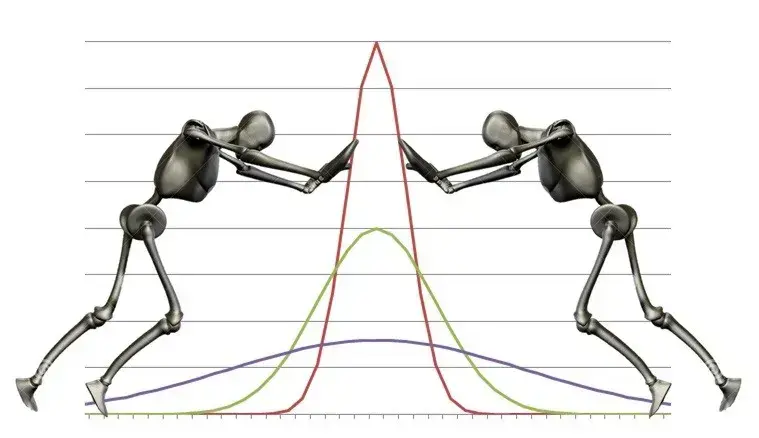In today’s fast-paced world, where time is a valuable commodity, dishwashers have become an indispensable appliance in modern kitchens. Gone are the days of spending long hours scrubbing and rinsing dishes by hand. Dishwashers not only save time and effort but also ensure that dishes are cleaned more effectively and hygienically. As technology continues to advance, dishwashers have evolved to become more energy-efficient, quieter, and smarter, making them a must-have for households and businesses alike. This article explores the types of dishwashers, their working mechanisms, benefits, key features to consider, and future trends in dishwasher technology.
What is a Dishwasher and How Does It Work?
A dishwasher is an automated appliance designed to clean, rinse, and dry dirty dishes, utensils, and cookware. It uses a combination of water, detergent, heat, and powerful jets to remove food particles and grease, leaving dishes sparkling clean.
How Dishwashers Work
Pre-Rinse Cycle: The dishwasher sprays a jet of water to loosen any food debris from the dishes.
Detergent Dispensing: The detergent compartment opens, releasing detergent into the water.
Main Wash Cycle: Hot water, along with detergent, circulates through spray arms, ensuring thorough cleaning.
Rinse Cycle: The dishwasher rinses the dishes to remove any remaining detergent or residue.
Drying Cycle: Depending on the model, dishes are dried either using a heating element or by condensation.
Modern dishwashers come equipped with sensors and smart technology that optimize water usage, energy consumption, and wash cycles based on the load.
Types of Dishwashers: Choosing the Right One for Your Kitchen
Dishwashers come in various sizes and configurations, catering to different household and commercial needs. Here’s an overview of the most common types:
- Built-In Dishwashers Overview: Built-in dishwashers are the most common type, designed to be installed permanently under the kitchen counter.
Ideal For: Medium to large households with ample kitchen space.
Pros: Sleek and space-saving, with advanced features and multiple wash cycles.
Cons: Requires professional installation and is not portable.
- Portable Dishwashers Overview: Portable dishwashers are freestanding units that can be connected to the kitchen sink using a hose.
Ideal For: Renters or small kitchens without built-in dishwasher space.
Pros: Easy to move and requires minimal installation.
Cons: Takes up floor space and requires manual connection to the sink.
- Countertop Dishwashers Overview: Countertop dishwashers are compact and sit on the kitchen counter, connected to the sink faucet.
Ideal For: Small households, apartments, and individuals with limited space.
Pros: Affordable, space-saving, and easy to install.
Cons: Limited capacity and fewer features compared to built-in models.
- Drawer Dishwashers Overview: Drawer dishwashers feature one or two pull-out drawers that function independently.
Ideal For: Small families or couples who prefer to run smaller loads more frequently.
Pros: Flexibility to run smaller loads and energy efficiency.
Cons: Higher initial cost and limited capacity.
Key Features to Look for in a Dishwasher
When purchasing a dishwasher, it’s essential to consider various features that enhance performance, energy efficiency, and convenience. Here’s what to look for:
✅ 1. Capacity and Size
Dishwashers come in different sizes, typically accommodating 8 to 16 place settings. Choose a size that suits your household’s daily dishwashing needs.
✅ 2. Energy Efficiency and Water Usage
Look for Energy Star-certified dishwashers that consume less electricity and water. Modern dishwashers can use as little as 3 gallons of water per cycle compared to the 20 gallons used in manual washing.
✅ 3. Wash Cycles and Settings
Different wash cycles, such as normal, heavy, eco, quick wash, and sanitize, allow flexibility in cleaning different types of dishes and cookware. High-end models also offer sensor-based cycles that adjust based on load size and soil level.
✅ 4. Noise Levels
Noise levels, measured in decibels (dB), can vary among dishwashers. Models with 45 dB or lower operate quietly, making them suitable for open-concept kitchens.
✅ 5. Drying Options
Dishwashers offer different drying methods, including:
Heated Drying: Uses a heating element for faster drying.
Condensation Drying: Utilizes residual heat for energy-efficient drying.
Fan-Assisted Drying: Circulates warm air for quicker results.
✅ 6. Smart Features and Connectivity
Smart dishwashers equipped with Wi-Fi connectivity allow users to monitor and control the appliance remotely using a smartphone. They also send alerts when the cycle is complete or when maintenance is required.
✅ 7. Adjustable Racks and Loading Flexibility
Adjustable racks and foldable tines offer greater flexibility for loading larger pots, pans, and delicate glassware. Some models even feature third racks for additional storage.
Benefits of Using a Dishwasher
Dishwashers offer several advantages beyond just convenience. Here’s why investing in a dishwasher is a smart choice:
🚿 1. Time and Effort Savings
Manual dishwashing can be time-consuming and physically tiring. Dishwashers handle the task efficiently, allowing users to focus on other activities.
🚿 2. Superior Cleaning and Hygiene
Dishwashers use hot water and powerful jets to remove bacteria and grease, ensuring a higher level of cleanliness than manual washing.
🚿 3. Water and Energy Efficiency
Modern dishwashers consume significantly less water than handwashing. Energy-efficient models reduce electricity usage, making them environmentally friendly.
🚿 4. Reduced Risk of Cross-Contamination
Dishwashers minimize the risk of bacteria spreading from dirty dishes to hands and sponges, improving overall kitchen hygiene.
🚿 5. Convenience and Flexibility
With multiple wash cycles and delay start options, dishwashers offer the flexibility to schedule cleaning according to user preferences.
🚿 6. Prolonged Lifespan of Dishes
Handwashing can be harsh on delicate dishes, leading to wear and tear. Dishwashers use gentle water pressure, extending the life of glassware and utensils.
Challenges and Limitations of Dishwashers
While dishwashers offer numerous benefits, they also come with a few challenges:
❌ 1. Initial Cost and Installation
Built-in dishwashers require professional installation, adding to the initial cost. High-end models with advanced features can be expensive.
❌ 2. Maintenance and Repairs
Regular maintenance is required to keep the dishwasher running smoothly. Clogged filters, worn-out seals, and malfunctioning spray arms can affect performance.
❌ 3. Space Constraints
Countertop and portable dishwashers take up valuable counter or floor space, which may not be ideal for small kitchens.
The Future of Dishwashers: Emerging Trends and Innovations
As technology continues to evolve, dishwashers are becoming smarter, more efficient, and more user-friendly. Here’s a look at some exciting trends:
🚀 1. AI-Powered Dishwashers
Artificial intelligence (AI) will enable dishwashers to optimize water usage, detergent levels, and cycle duration based on load size and dirt levels.
🚀 2. IoT and Smart Home Integration
Smart dishwashers will be fully integrated into smart home ecosystems, allowing users to control them through voice assistants like Amazon Alexa and Google Assistant.
🚀 3. Eco-Friendly and Sustainable Models
Future dishwashers will use advanced filtration systems and water recycling technologies to further reduce water and energy consumption.
🚀 4. Self-Cleaning and Maintenance-Free Designs
Self-cleaning filters and automatic maintenance alerts will ensure optimal performance and longevity without requiring manual intervention.
Final Verdict: Dishwashers are a Game-Changer for Modern Kitchens
Dishwashers have evolved from being a luxury to a necessity, offering unparalleled convenience, hygiene, and efficiency in the kitchen. Whether you’re a busy professional, a parent managing a hectic household, or simply someone who values a clean and organized kitchen, a dishwasher can make a world of difference. As technology continues to advance, dishwashers will become smarter, greener, and even more efficient, ensuring that they remain an essential part of modern living.

